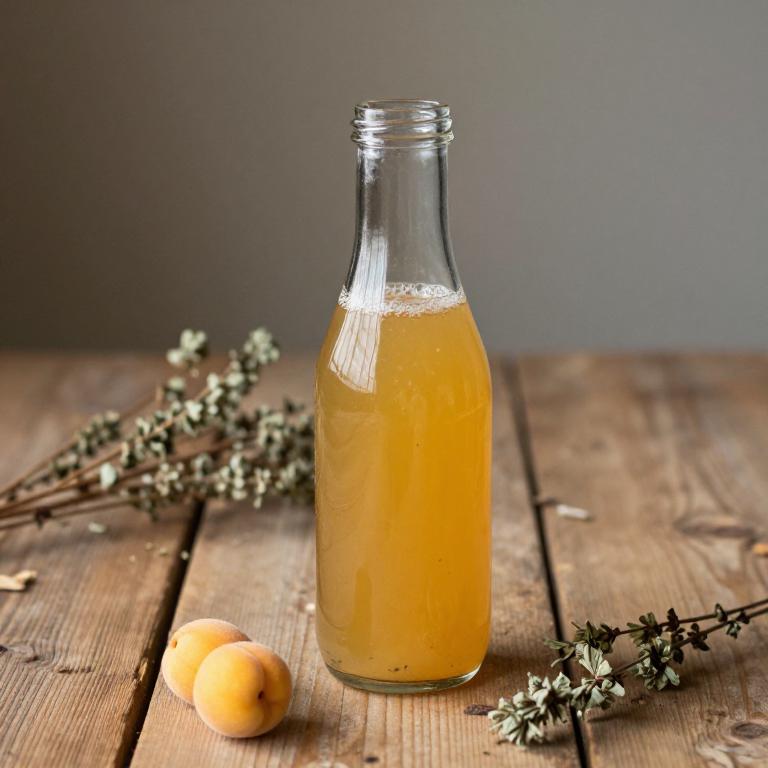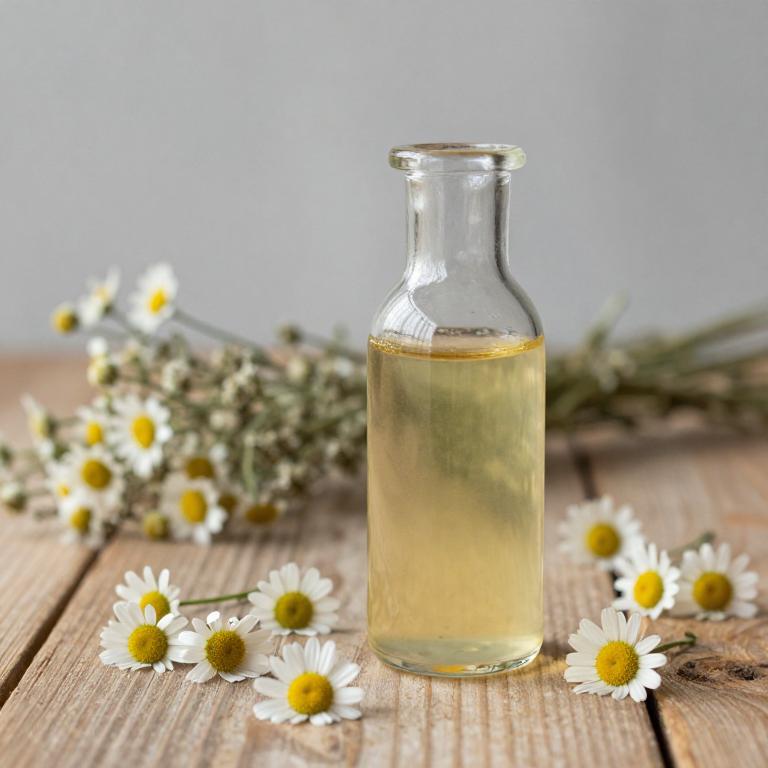10 Best Herbal Juices For Inflammatory Bowel Disease

Herbal juices have gained attention as potential complementary therapies for individuals with inflammatory bowel disease (IBD), such as Crohn's disease and ulcerative colitis.
Certain herbs, including turmeric, ginger, and licorice root, are believed to possess anti-inflammatory and digestive properties that may help reduce intestinal inflammation. While some studies suggest that these natural remedies could support symptom management, more rigorous clinical trials are needed to confirm their efficacy and safety. Herbal juices should not replace conventional medical treatments but may be used under the guidance of a healthcare professional as part of a holistic approach.
It is important for IBD patients to consult with their doctor before incorporating any herbal supplements into their regimen to avoid potential interactions or adverse effects.
Table of Contents
- 1. Turmeric (Curcuma longa)
- 2. Aloe vera (Aloe barbadensis)
- 3. Thistle (Silybum marianum)
- 4. Ginger (Zingiber officinale)
- 5. Stinging nettle (Urtica dioica)
- 6. Blessed thistle (Cnicus benedictus)
- 7. Licorice (Glycyrrhiza glabra)
- 8. Fennel (Foeniculum vulgare)
- 9. European plum (Prunus domestica)
- 10. Chamomile (Matricaria chamomilla)
1. Turmeric (Curcuma longa)

Curcuma longa, commonly known as turmeric, contains curcumin, a bioactive compound with potent anti-inflammatory and antioxidant properties.
Studies suggest that curcumin may help reduce inflammation in the gastrointestinal tract, making it a potential complementary therapy for inflammatory bowel disease (IBD). Herbal juices made from turmeric can be easily incorporated into daily diets, offering a natural and accessible way to support digestive health. However, while curcumin shows promise, more clinical trials are needed to establish its efficacy and optimal dosing for IBD patients.
It is important to consult a healthcare provider before using turmeric-based remedies, especially for individuals with existing medical conditions or those on medications.
2. Aloe vera (Aloe barbadensis)

Aloe barbadensis, commonly known as aloe vera, has been traditionally used for its potential therapeutic effects on digestive health.
Some studies suggest that aloe vera juice may help reduce inflammation in the gastrointestinal tract, making it a possible complementary therapy for inflammatory bowel disease (IBD). The gel from the aloe plant contains antioxidants, anti-inflammatory compounds, and mucopolysaccharides that may support gut healing and reduce symptoms like bloating and discomfort. However, it is important to note that while preliminary research is promising, more clinical trials are needed to confirm its efficacy and safety for IBD patients.
As with any herbal remedy, it should be used under the guidance of a healthcare professional to avoid interactions with other medications.
3. Thistle (Silybum marianum)

Silybum marianum, commonly known as milk thistle, has gained attention for its potential therapeutic effects in managing inflammatory bowel disease (IBD).
The active compound, silymarin, is believed to possess anti-inflammatory, antioxidant, and hepatoprotective properties that may help reduce intestinal inflammation and support gut health. Some preliminary studies suggest that silymarin could modulate immune responses and inhibit pro-inflammatory cytokines, which are often elevated in IBD. However, more clinical research is needed to confirm its efficacy and safety in human patients with IBD.
Despite these promising findings, silybum marianum herbal juices should be used as a complementary therapy under the guidance of a healthcare professional.
4. Ginger (Zingiber officinale)

Zingiber officinale, commonly known as ginger, has been traditionally used for its anti-inflammatory and digestive properties, making it a potential natural remedy for individuals with inflammatory bowel disease (IBD).
Ginger contains bioactive compounds such as gingerol and shogaol, which have been shown to reduce inflammation and oxidative stress in the gastrointestinal tract. Herbal juices made from fresh or dried ginger may help alleviate symptoms like bloating, cramping, and diarrhea associated with conditions such as Crohn's disease and ulcerative colitis. While some studies suggest that ginger can be beneficial in managing IBD, it is important to consult with a healthcare provider before incorporating it into a treatment regimen, as it may interact with certain medications.
Overall, ginger herbal juices offer a natural, complementary approach to managing inflammation and supporting gut health in IBD patients.
5. Stinging nettle (Urtica dioica)

Urtica dioica, commonly known as stinging nettle, has been explored as a potential herbal remedy for inflammatory bowel disease (IBD) due to its anti-inflammatory and antioxidant properties.
Preliminary studies suggest that nettle juice may help reduce intestinal inflammation by modulating immune responses and inhibiting pro-inflammatory cytokines. However, more clinical research is needed to confirm its efficacy and safety in managing conditions like Crohn's disease and ulcerative colitis. Some proponents claim that regular consumption of stinging nettle juice can alleviate symptoms such as abdominal pain and diarrhea in IBD patients.
Despite these anecdotal reports, it is important to consult with a healthcare provider before incorporating nettle juice into an IBD treatment plan.
6. Blessed thistle (Cnicus benedictus)

Cnicus benedictus, commonly known as sweet cicely, has been explored for its potential therapeutic benefits in managing inflammatory bowel disease (IBD) due to its bioactive compounds such as flavonoids, phenolic acids, and essential oils.
Preliminary studies suggest that the herb may exhibit anti-inflammatory and antioxidant properties, which could help reduce gut inflammation and oxidative stress associated with conditions like Crohn's disease and ulcerative colitis. Some research indicates that Cnicus benedictus extracts may modulate the gut microbiota and enhance intestinal barrier function, contributing to improved gut health. However, more clinical trials are needed to confirm its efficacy and safety in IBD patients.
As a complementary therapy, Cnicus benedictus herbal juice may offer a natural option for supporting digestive wellness, though it should be used under medical supervision.
7. Licorice (Glycyrrhiza glabra)

Glycyrrhiza glabra, commonly known as licorice root, has been traditionally used for its anti-inflammatory and soothing properties, making it a potential herbal remedy for inflammatory bowel disease (IBD).
The active compounds in licorice root, such as glycyrrhizin and flavonoids, exhibit anti-inflammatory, immunomodulatory, and antioxidant effects that may help reduce intestinal inflammation. Studies suggest that licorice juice or extracts could support gut health by modulating the immune response and protecting the intestinal lining. However, long-term use of licorice root may lead to side effects like hypertension and electrolyte imbalances due to its mineralocorticoid-like activity.
As a result, it is often recommended to use licorice-based herbal juices under the guidance of a healthcare professional for managing IBD symptoms.
8. Fennel (Foeniculum vulgare)

Foeniculum vulgare, commonly known as fennel, has been traditionally used for its potential anti-inflammatory properties, making it a subject of interest in the management of inflammatory bowel disease (IBD).
Fennel contains essential oils, such as anethole and fenchone, which exhibit anti-inflammatory and antioxidant effects that may help reduce intestinal inflammation. Some studies suggest that fennel juice might support gut health by modulating gut microbiota and improving digestive function in individuals with IBD. However, while preliminary research shows promise, more clinical trials are needed to confirm its efficacy and safety for long-term use in IBD patients.
As a complementary therapy, fennel juice should be used under the guidance of a healthcare professional to ensure it does not interfere with existing treatments.
9. European plum (Prunus domestica)

Prunus domestica, commonly known as the European black currant, has gained attention for its potential therapeutic effects in managing inflammatory bowel disease (IBD).
The berries are rich in bioactive compounds such as anthocyanins, flavonoids, and polyphenols, which exhibit potent anti-inflammatory and antioxidant properties. Studies suggest that these compounds may help reduce intestinal inflammation by inhibiting pro-inflammatory pathways and modulating immune responses. Some preliminary research indicates that incorporating Prunus domestica herbal juices into the diet could support gut health and alleviate symptoms in individuals with IBD.
However, more clinical trials are needed to confirm its efficacy and determine optimal dosages for therapeutic use.
10. Chamomile (Matricaria chamomilla)

Matricaria chamomilla, commonly known as chamomile, has been traditionally used for its anti-inflammatory and soothing properties, making it a subject of interest in the treatment of inflammatory bowel disease (IBD).
Preliminary research suggests that the flavonoids and essential oils in chamomile juice may help reduce intestinal inflammation by inhibiting pro-inflammatory cytokines and oxidative stress. While some studies indicate potential benefits, more rigorous clinical trials are needed to confirm its efficacy and safety in managing IBD symptoms. Chamomile juice is generally considered safe for most people when consumed in moderate amounts, though it may interact with certain medications or cause allergic reactions in some individuals.
As a complementary therapy, chamomile juice may offer relief for mild IBD symptoms, but it should not replace conventional medical treatments without consulting a healthcare professional.